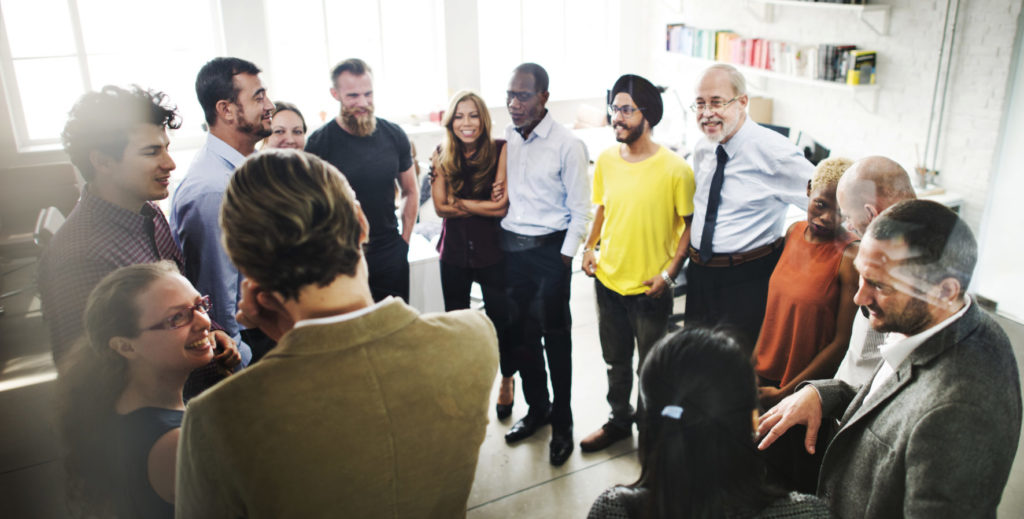Singularity will overtake inclusion

For several years, the subject of diversity and inclusion has been high on the agenda of Human Resources (HR) departments. The results of Human & Work’s summer 2022 barometer, which surveyed HR professionals across France, Italy, Spain and Germany confirm this trend: inclusion will be one of the two priorities on the roadmap of European HR departments in 2023, along with employee engagement. So, what exactly lies behind this term? HR professionals have seen an exponential increase in the need for targeted action in recent years. In addition to so-called 'historic' topics - such as gender equality and including employees with disabilities - more recent topics relating to LGBTQ+ inclusion and religion have emerged, closely followed by the employability of older working professionals, carers, employees returning to work after a long illness and many others. However, all these subjects should not be considered in a chronological order. Rather, they are intertwined, not unlike a millefeuille. It is therefore difficult to integrate them into an HR agenda.
The challenge is that this phenomenon will increase in the coming years, for two reasons. The first is that we are making more and more people feel excluded. The platforms and echo chambers provided by social media have encouraged and emboldened extremist point of views and fuel antagonism; technological upheaval and other disruptions increase inequalities, leaving many feeling left out. Second, the need to feel a sense of belonging to one’s workplace is on the rise, whereas the sense of connection is waning. The results of the first studies of companies that allow full remote working highlighted a lack of the kind of informal relations which are necessary to nurture and maintain this sense of belonging. On this point, all working professionals have at least one example of a botched onboarding that took place during the COVID pandemic, because belonging cannot just be felt by decree: it has to be experienced genuinely. We are therefore faced with a scissor effect with, on the one hand, more and more situations of exclusion, and on the other, a growing need to have a sense of belonging to a collective entity.
The good news is that it forces us to rethink our paradigm! A few weeks ago, the Paralympic champion Michaël Jeremiasz signed an article entitled "STOP inclusion" in which he stated that "firms do not have to be inclusive. We ask of them that they remain firms, these organisations replete with diverse talents, that create social value (a common good) as well as economic value (a service for all)". In his words, Michaël Jeremiasz questions the conventional wisdom that the notion of inclusion intrinsically induces as process of integration of - a priori - excluded people. Thus, women, people with disabilities and those who identify as LGBTQ+ (to cite just three criteria for discrimination) would a priori be excluded from groups of straight men. Here again, one can become overwhelmed by the sheer number of people who, following this logic, feel excluded from the company! Add this to the time and budgets allocated to diversity and inclusion issues and you will feel that you are doomed to fail before you have even started. This is unthinkable in companies or organisations where performance and impact are central concerns.
SO, WHAT IF WE PUT OURSELVES IN A WIN-WIN SITUATION RIGHT FROM THE START?
What happens if we banish the word “inclusion”? We are faced with a diverse group of individuals all of whom, a priori, want to feel a sense of belonging to the organisation for which they work. Therefore, efforts shouldn’t be geared towards including a multitude of sets (B, B', B''...) within set A but to orchestrate all this diversity within a broader collective entity. Easy to say, but how does one then avoid the pitfall of dealing with a cacophony of individual needs? This is where we need to be clear about the desired outcome. Taking individual characteristics into account does not mean that we must systematically adapt to each one. It means being aware of the existence of and the added value differences bring, in strategy and management. For this to be possible, it is necessary to work both on openness and our relationship with others, but also on the collective dynamic. To unite people, companies must be experiential places: organisations that learn to live well together in order to work well together.

Aurélie Judlin
Managing Director of EQUILIBRES

